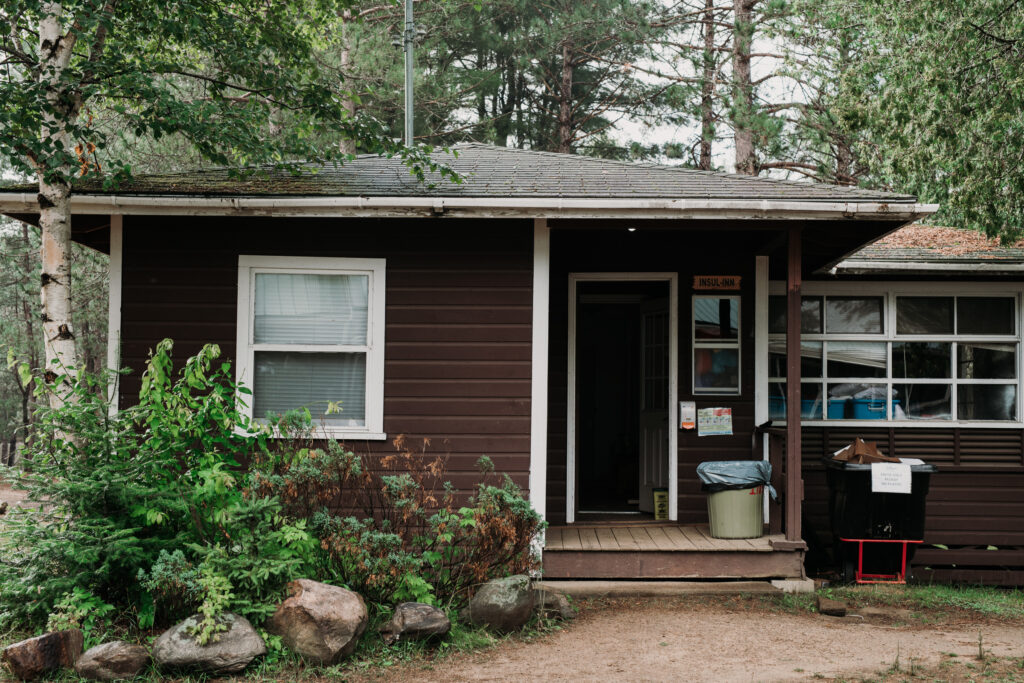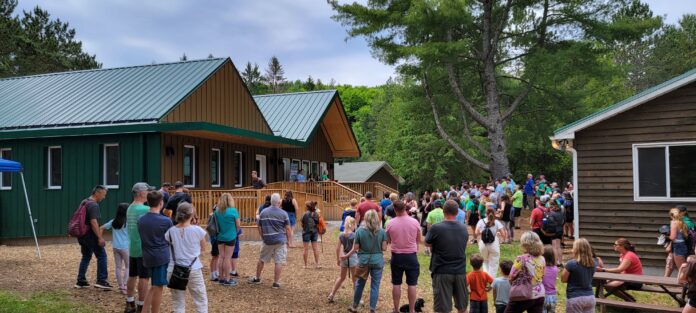A new medical centre in Huntsville is a gamechanger for youths with type 1 diabetes going to camp.
That from Lauren Linklater, Director of Camp Huronda, which unveiled the replacement for its nearly 70-year-old “Insul-Inn” medical centre on Sunday. Campers will be welcomed back after a two-year COVID-19 hiatus to a brand new, climate-controlled facility about twice the size of the old one.

According to Linklater, the new building allows them to store medication and give care in the same place, as well as service more campers.
“Diabetes is 24/7, and so is our medical team, which means we have medical staff working around the clock, including night rounds at every single camper cabin,” says Linklater, noting campers need to be seen at least twice per day. “So making sure that we are appropriately stocked, staffed [for] supervision and training, and having the facility to support that, is absolutely incredible.”
Camp Huronda is part of Diabetes Canada’s D-Camps program, which provides summer camps for families living with type-1 diabetes. The new Insul-Inn is thanks largely to support from pharmaceutical company Novo Nordisk Canada, according to Laura Syron, President and CEO of Diabetes Canada.
Syron says although the goal is to give kids a summer camp experience, the requirements of a D-Camp are quite unique.
“Yes, we have to have waterfront, and we have to have a great dining hall, but every child here lives with Type 1 Diabetes and has pretty complex medical needs,” says Syron. “The old [medical centre] was built in 1954, was about half the size, and really didn’t have all the current amenities. This is much bigger, but also there’s a place for education, for kids to learn about their disease, learn how to do injections for the first time, all that kind of stuff, so really we couldn’t run the camp without it.”
Amanda Coschi, the camp’s nursing coordinator, says this keeps the medical side moving smoothly, to let kids get on with regular camp activities.
“When you think of the flow of managing almost 100 people living with diabetes, that’s not an easy feat to get everyone either taking their injection or bolusing through their pump, to get all of that done on time for a meal,” says Coschi.
Bolusing is when insulin is administered at meal time, to keep blood sugar levels normal after eating.
“We have the dietetic team, our nurses, the physicians, the residents. Everyone here really plays a part, and to be able to do that all in one location makes a huge difference,” she says.
Coschi says the end goal is to make campers more comfortable with managing their conditions.
“It’s a great opportunity for kids to build confidence, and following that, independence in their own diabetes management, while feeling fully supported by the team,” says Coschi. “That team can be the physicians, the nurses, but it’s also their councillor who’s living with diabetes, the campers that are as well, really using peer education with the supervision of our medical staff.”
As many staff members are alumni of the camp, Linklater says it’s touching to see things improve for the next generation.
“A lot of our staff members, they grew up in the previous medical building. So coming back to camp this summer and seeing the brand new building, and of course knowing that so many of them accomplished a diabetes milestone, a diabetes first, [in] the old building,” says Linklater. “I think it is really exciting to see the joy that sparks, to know of the memories that will be made in there as well.”



